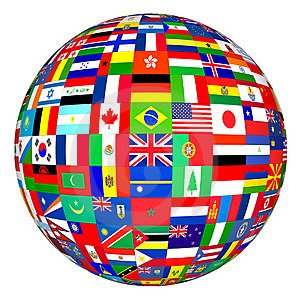Foreign language acquisition and multilingualism have been influential human phenomena for centuries, with the most popular and supposedly successful methodology being a combination of formal study and cultural-linguistic immersion. As any foreign language learner can attest, the statement “in order to really learn a language, you must live where it is spoken” is a common one.
In recent decades, though, because of globalization and international business, among other factors, multilingualism has risen. Now, multilingual speakers outnumber monolingual speakers, and their means of acquisition are becoming increasingly diverse. Now, for instance, a native Spanish speaker in Mexico City is able to practice her Russian with a native Russian speaker in Moscow.
The Internet’s influence on multilingualism is obvious, for it is an easily accessible, seemingly unlimited realm of many languages. Traditionally, using the Internet would foster passive language learning, i.e. reading, above all English, which is used exclusively on nearly fifty-seven percent of websites. But many have begun to utilize the realm in some innovative ways, forming online communities of like-minded learners, yielding impressive results.
One such learner who’s had particularly impressive results is 17-year-old polyglot Timothy Doner of New York, who’s become fluent in several languages, and has a working knowledge of more than 20, mostly thanks to his conversations with native speakers around the world. Although he supplements these conversations with traditional book-study, he attests that the most useful method has been speaking with native-speaking friends, who he slowly acquired after posting several YouTube videos of himself speaking in the particular language(s) he had been focusing on at the time.
The phenomenon could completely change the way foreign languages are learned and taught. If one is able to speak with native speakers—and furthermore, watch them speak—how necessary is it to actually be physically close to them, let alone in the same region of the world? What’s more, applications like Skype make it possible to speak with multiple native speakers simultaneously. Many language institutes have already harnessed the technology, and now offer classes—one-on-one- and group-style—through Skype.
But perhaps it has deeper implications still, as evidenced by Doner in a 2012 video interview. “I don’t necessary see language as being first and foremost about communication”, he says, “You can almost see it as studying a sort of math.” Although many would argue that math is a sort of language as well, Doner’s statement/motivations suggest that the nature of language acquisition and its relationship to foreign cultures and experience is changing. Sure, it may be easier to learn foreign languages now, but does that somehow cheapen the process, and by extent, foreign cultures as we traditionally understand and seek to better understand them?
What do you think? Is the new phenomenon an ultimately good thing, or it does what is inevitably lost outweigh the benefits?








